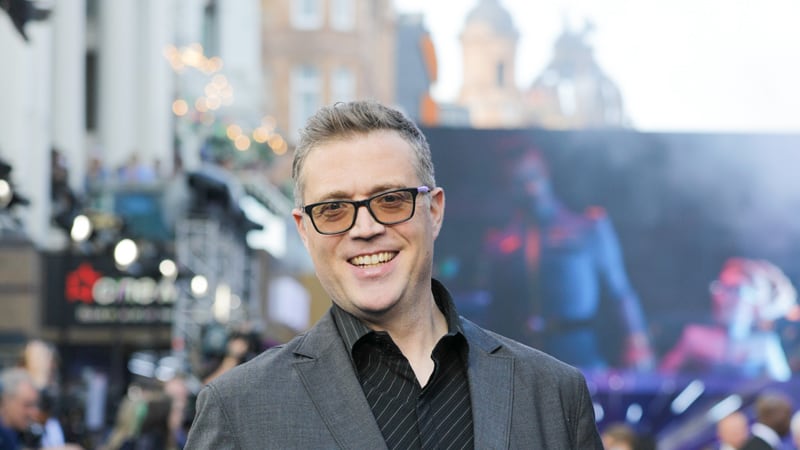Angus MacLane still wonders what would have happened if he hadn’t left Portland, where he grew up.
“What if I would have stayed in Portland and settled down there?” he muses. “It’s a different choice. But there’s a sense of duty or otherworldly…this drive I have to make a movie and tell stories would prevent that kind of thing.”
Calling the creation of cinema a “duty” might sound like an exaggeration, but MacLane is the director of Lightyear, the latest film from Pixar Animation Studios—and he’s worked on countless Pixar classics, including Toy Story 2 and 3.
MacLane decided to make Lightyear after co-directing Finding Dory with his mentor, Andrew Stanton (Finding Nemo, WALL-E, John Carter). Ostensibly a spinoff spotlighting Buzz Lightyear, the lovably pompous space ranger from Toy Story, Lightyear sends the character on an unexpectedly melancholy journey into the void.
Stranded on an alien planet and separated from his crew by time dilation, Buzz watches his compatriots age while he remains frozen in youth. It’s a journey that resonated with MacLane, who felt time rapidly slip by while he immersed himself in the four-year process of directing a Pixar film.
In a frank and friendly Zoom conversation, MacLane spoke to WW about the making of Lightyear—and his complex collaboration with Stanton, who executive produced the film.
WW: In Lightyear, Buzz is struggling with whether he can make peace with life in the unknown. What fascinates you about that?
Angus MacLane: The struggle for Buzz in Lightyear to me is really centered around ambition versus settling. “To infinity” means he’s going to ride the wave of accomplishment—he’s committed to his job and he’s going to keep going forever without ever stopping to live in the moment. It was always intended to be that Buzz gets a family. And at the end of the film, he’s content enough to stand still, even if it means acknowledging his own mortality.
You’re not afraid to let the younger audience wrestle with those intense emotions?
I think kids are really smart. I think it’s hard to make a movie geared toward children that you yourself wouldn’t enjoy. For me, it was personal in that the germ of the idea of time dilation is based around working in animation and completing these missions, finishing these movies—and taking so much time that four years go by.
I would come back to Portland and things would change, and no one in Portland seemed to care or know about or recognize it. But everyone felt older and I felt like I was the same age, even though I wasn’t. So in a sense, each of these projects was a time jump that I was going through—and I was seeing time change, and that was the path not taken.
You’ve been working on Lightyear since the year Finding Dory came out. Does it stagger you how much the world’s changed since then?
As with all things, success or failure, all you have is yourself and the people you surround yourself with. It’s a challenging film in that way, because you have a character who, any time they would do something on their own, they fail. It actually requires them to do stuff with a group, because that’s the experience of film production. In some ways, it’s a metacommentary on the myth of the rugged individualist. In Buzz’s failure, he isolated himself very specifically, and he didn’t need to do that.
What makes you and Andrew Stanton a good team?
No one’s ever asked that. Andrew is a force of nature, and his brain works incredibly quickly. Seemingly with authority, he’ll sell ideas—and in some cases, that can be intimidating. But for whatever reason, he’s always been like a bigger brother to me—and I’ve always been able to go, “Yeah, but hold on,” and then we’re able to riff on things together. What’s really fun is when it’s not one of our movies, when it’s some other movie that we’re looking at together.
He’s the reason I’m where I’m at, because he believed in me. But I think that his whole thing is, he doesn’t want to do someone’s job for them. Working with Andrew, you’re in the arena with him. You need to be moving as fast as he is—and he’s much smarter than I am, so I just try to keep up. But that kind of mentorship that I got from working with him, on many films now, is such a gift.
SEE IT: Lightyear, rated PG, screens at Academy, Cedar Hills, City Center, Eastport, Evergreen Parkway, Laurelhurst, Living Room, Lloyd Center, Pioneer Place, Roseway, St. Johns Twin, Tigard, Wunderland Beaverton, Wunderland Milwaukie.
